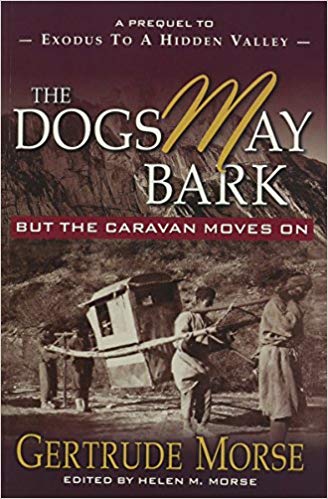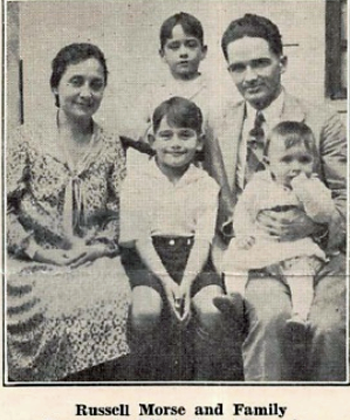When Russell Morse and his wife Gertrude first went into “the closed land” of Tibet in the 1920s, they traveled on pack animals and sedan chairs with their two young sons from Kunming to Batang, on the Sino-Tibetan frontier.
During their first night of the journey they planned to stay in a temple at Leh, “but found that three very suspicious-looking men had already moved in,” according to Gertrude Morse’s account in her faith-building book, The Dogs May Bark: But the Caravan Moves On.
“It was feared they might be spies for a band of robbers,” she noted. Therefore, they shifted their plans and stayed the night at a headman’s house in Tea Tree Mountain Village.
Bandits were known to occupy their route, so the next morning, Russell sent two men ahead to check their path in an area where robbers usually ambushed and robbed people.
 On the second night they camped near Drubalong, and slept very soundly in their three-in-one tent. Their Tibetan companions, however, did not sleep so well and got up several times that night to check for signs of any prowling thieves.
On the second night they camped near Drubalong, and slept very soundly in their three-in-one tent. Their Tibetan companions, however, did not sleep so well and got up several times that night to check for signs of any prowling thieves.
After she woke up, Gertrude asked one of the men, “Did you see any robbers?”
“There certainly were robbers around, but they did not bother us,” was his reply.
“How did that happen? Did some of our Tibetan friends stand guard?” she wondered.
“No, but a very excellent watchman helped me through the night,” he said, with a wry smile.
“Do you know who it was,” Gertrude asked.
“No I don’t. In the morning he was gone.”
On their return journey, a few local residents from the area quietly approached the Morse’s helpers and questioned them.
“Who were the guards around your camp when you went through here before?” they asked.







